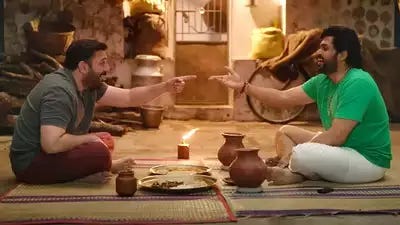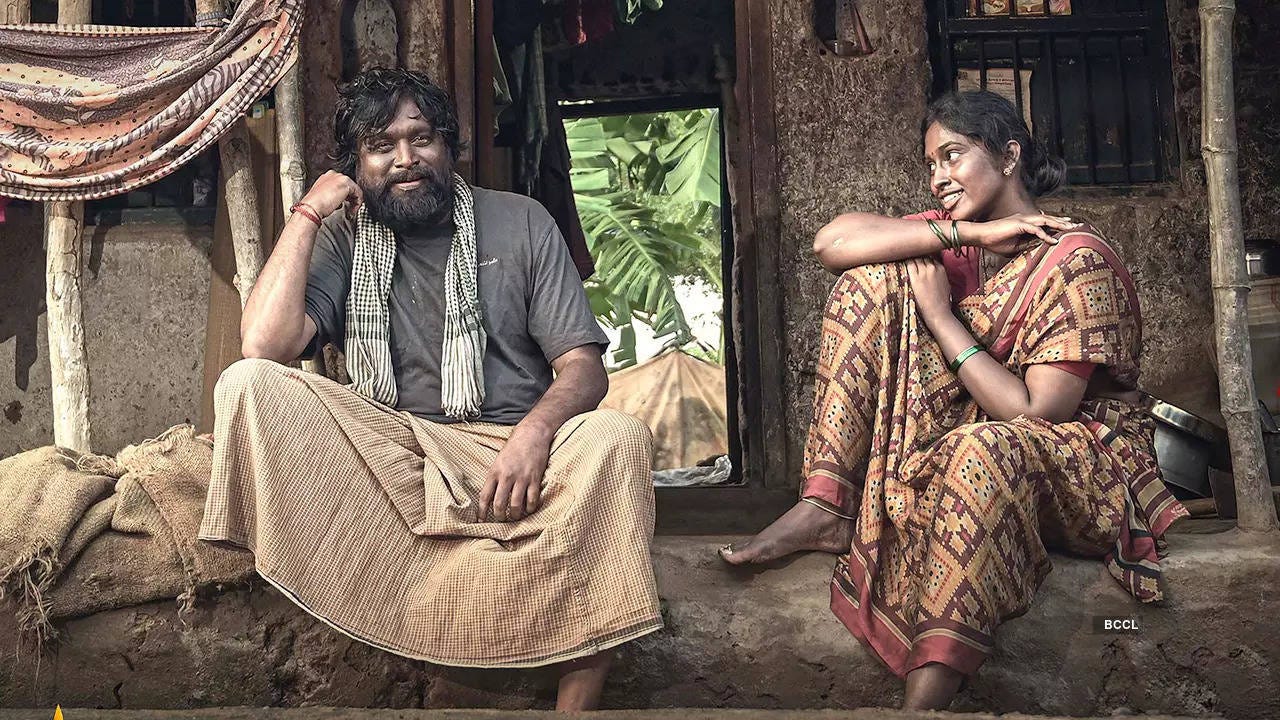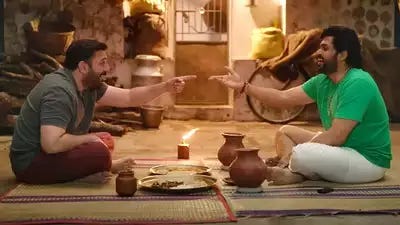The two 2024 release films have garnered some discussion routes, especially when they were released on OTT platforms. “Nandhan” deals with SCs being politically deprived, and “Meiyazhagan” works on a reconciliation within family and town, which in a manner is reconciliation with self.
The two films, with different themes, have come together in my discussion for a simple-linear script that they follow. A reminder strongly pitching the fact that movies can be gripping without digressions into action-sequences or elaborate romance or glamour-scenes. The well-thought execution of an idea in its simplest format is just enough! Both films have had their share of praises and criticisms, however, each of them must be viewed for elements that contributes to film literature.
“Nanadhan” (Prime) does not take its name from the lead of the film, rather, it is the name of a person who is killed, but the act is made to look as an accident, in the beginning. Ambethkumar aka Koozh Paane (played by M. Sasikumar) portrays a character who is completely comfortable being a servile servant to the upper-caste lords. The film does not dwell on introspections and then on epiphanies like “Pariyerum Perumal” or “Maamannan”, instead, it pans over a lot of metaphors and leaves it to the audience for final interpretation.
The commencement of the film does not show any individual, rather the camera pictures the slippers left outside a temple, with voices of men seriously discussing about the upcoming elections in the background. While many literary pieces speak of different gods for different castes, this metaphor, marks a place of worship where even the upper-caste lords must show reverence and respect – a place where change begins – subtly hinting at the crux of the story – “Religion and Politics go hand-in-hand”. The linearity of the storytelling is what gives an impetus to the film. The conclusion too is not of a mighty battle, but a struggle of the oppressed caste to step into the realm of politics.
“Meiyazhagan” (Netflix) is a feel-good movie that treads gently on a linear script. It is heartwarming, and Arulmozhi Varman’s return to his hometown to attend a wedding becomes a journey for him to return to himself. We do not see eye-opening dialogues here, instead we see a hearty welcoming and common chatters between family members who meet after a very long time. This reunion brings happiness in us reminding each of us how we have isolated ourselves and living an almost meaningless life.
Set in a day or two’s time, the narration is minimal, and we have the camera speaking mostly. It may appear that Arulmozhi (played by Aravind Swamy) and Meiyazhagan (played by Karthik Siva Kumar) are the ones talking, but in close observation, the camera is doing its job quietly and efficiently. We do not have long-shots in the film. Just wide angles and close-ups are deployed adequately in this execution. The technique of network-narrative is partially employed in the scene where Arulmozhi and Meiyazhagan come together to drink and recollect anecdotes. Such thoughtful choreographed scenes with due importance for techniques of execution provides the dialogues with a certain kind of a depth, which otherwise would have been generic and fallen flat.
The internal struggle to not hurt someone who has been immensely kind to you brings out the latent fear and shame. However, we do not see any elaborate time wasted in showcasing this. Just the right lapse of time and a phone call relieves the audience too. The script attains its weightage mostly in the creativity of camera and, sometimes, sticking to the effectiveness of linear storytelling.
If you have watched the two films already, then tell me what you think!






Thank you for sharing. Wanted to watch Nandhan, will watch this weekend. Enjoyed watching Meiyazhagan.